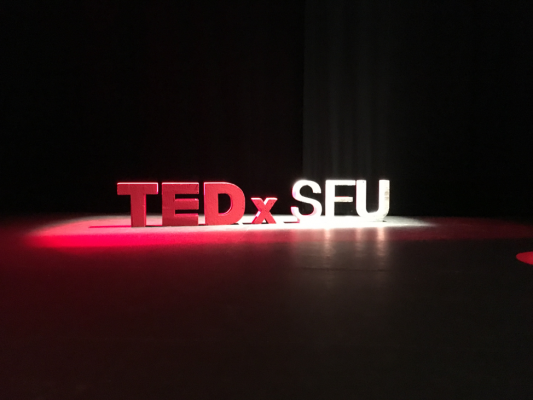
Last year, I was a member of the Partner Relations (sponsorship, in simpler terms) team for TEDxSFU. I learned a number of useful skills while on the team, with the most important being that partner relations is probably one of the most useful experiences for an undergrad: you learn networking, relationship management and negotiation skills – all at the same time! As well, you’ll probably work with an amazing team with amazing people, which in turn yield amazing results. Such was the case for 2016’s TEDxSFU conference: nine months of planning resulted in one extraordinary conference with 9 speakers and 5 performers sharing their ideas worth spreading. Another thing I learned was just how unfortunately accurate certain cliché’s can be in a partner relations role, which I’ll explain in this post.
Shoot for the moon, if you miss, you’ll still land among the stars
Whether you’re negotiating a salary, raise, monetary sponsorship, or fantasy basketball trade, it’s important to remember the worst thing a person can do is say no. Entering a situation already internally compromised about only receiving the minimum of what you want, will result in less when you might have been able to attain more. When negotiating, be confident with what you’re able to offer and the value you provide. So shoot for the moon: aim high and negotiate down from there. There will be rejections, but there’s also the possibility you receive exactly, or more than expected.
Hope for the best, but expect the worst
After negotiating (note that terrible cliché #1 is during) it’s useful to temper expectations. If your expectations are sky high, it’s quite possible that it will end in disappointment. Do your research and consider the resources the company is able to offer, and what your event requires. Align them and set realistic expectations for both sides. Not only will this encourage an accommodating relationship, but the company will appreciate the consideration you took to ensure a mutually beneficial partnership.
Don’t judge a book by its cover
Often, I found myself having a preconceived misconception regarding which companies would be more inclined to sponsor TEDxSFU. I was completely wrong many times. Reaching out to larger companies that had partnered with similar events in the past proved fruitless. It wasn’t until I started contacting much smaller, independent companies (some of which I had never heard of) did I find more success than expected. Often, these niche companies were the most excited about the partnership, and I was able to foster genuine relationships with them.
What doesn’t kill you makes you stronger
A reality of being in a partner relations role is you will be rejected. A lot. A lack of resources, budget, other commitments, and no interest were all some of the reasons for rejection I was given. That is if they bothered to reply back as more often than not, I would send emails only to receive no response. However, I found the positivity in this as the rejection fueled my creativity to think out of the box and leverage my own network to look elsewhere. It further motivated me and lead to the success of finding dedicated partners.
The bottom line is there is truth and a great learning experience behind the terrible clichés. The learning you can gain from committing to a role like this are tremendous, and can only contribute positively to personal growth. I would recommend every person try it at least once. If I had to find one last cliché to tie it all up, it would be this: life (and partner relations) is like a box of chocolates, you never know what you’re going to get.
 Jordan Eng is a 4th year Business Student concentrating in MIS and Operations. He is actively involved in case competitions and is pursuing a career in consulting post-SFU. He’s currently busy training for the McDonough-Hilltop Business Strategy Challenge in Washington, DC. Outside of training, he’s constantly searching for other opportunities to get involved both within SFU and his community. If you’re interested in learning more, feel free to shoot him an email jteng@sfu.ca, or connect with him on LinkedIn.
Jordan Eng is a 4th year Business Student concentrating in MIS and Operations. He is actively involved in case competitions and is pursuing a career in consulting post-SFU. He’s currently busy training for the McDonough-Hilltop Business Strategy Challenge in Washington, DC. Outside of training, he’s constantly searching for other opportunities to get involved both within SFU and his community. If you’re interested in learning more, feel free to shoot him an email jteng@sfu.ca, or connect with him on LinkedIn.